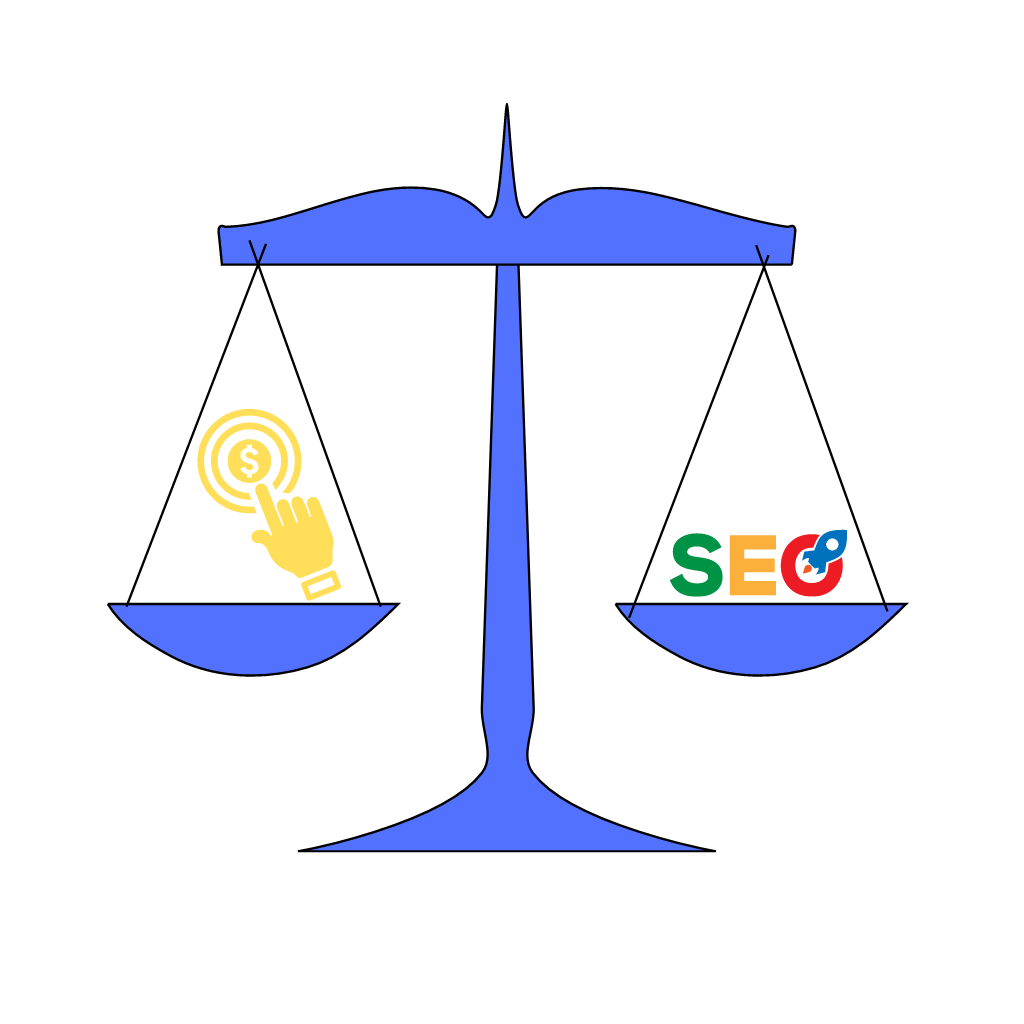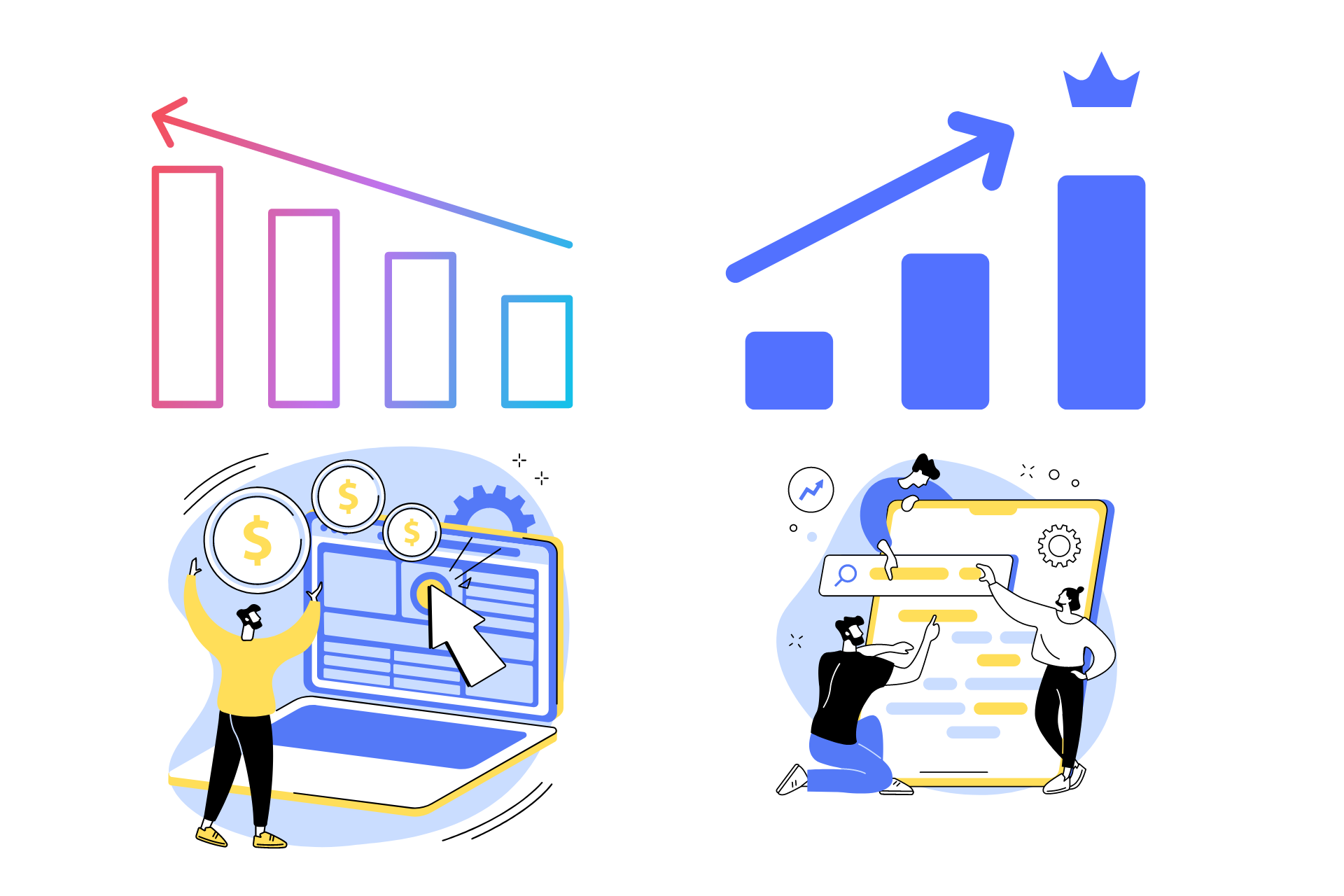How is ranking different when comparing PPC vs SEO
In the ever-evolving and competitive landscape of digital marketing, understanding the nuances between Pay-Per-Click (PPC) and Search Engine Optimization (SEO) is essential. Both strategies aim to boost online visibility and drive traffic, yet they operate with distinct methods, timelines, and outcomes. This article delves into the depths of how ranking dynamics differ when comparing PPC and SEO strategies.

Unveiling the Distinction: PPC and SEO Explained
PPC: Paving the Way with Precision
Pay-per-click advertising is a tactical approach that allows businesses to place ads in prime positions on search engine results pages (SERPs). In this strategy, advertisers bid on specific keywords relevant to their offerings. When users search using these keywords, the ads appear prominently at the top of the results, marked as “sponsored.” The uniqueness of PPC lies in its immediacy – as soon as the campaign is launched, the ads are visible, potentially driving instantaneous traffic to the website.
However, every click on a PPC ad incurs a cost to the advertiser, making budget management crucial. Once the allocated budget is exhausted, the ad stops displaying, leading to a swift drop in visibility. PPC is particularly valuable for new websites aiming for a rapid online presence, for time-sensitive promotions, or for businesses that seek immediate results.
SEO: Climbing Organically to the Top
Search Engine Optimization, commonly known as SEO, takes a different route to achieve visibility. Unlike PPC, SEO doesn’t involve direct payment for clicks. Instead, it focuses on optimizing various elements of a website to enhance its organic ranking on search engines. This optimization includes creating high-quality, relevant content, optimizing meta tags, improving website structure, and acquiring authoritative backlinks.
SEO operates with a longer timeline compared to PPC. It requires consistent efforts over time to demonstrate its effectiveness. The beauty of SEO lies in its potential for sustainable growth. A well-optimized website can secure a high-ranking position on SERPs, leading to increased organic traffic, credibility, and prolonged online visibility.
Analyzing the Differences in Ranking Dynamics
PPC Ranking Dynamics
The ranking mechanism in PPC is fairly straightforward. Advertisers with higher bids for specific keywords secure top positions in the sponsored section of SERPs. While this ensures immediate visibility, it is a short-term solution. Once the budget is depleted, the ad vanishes from the top spot. The frequency of clicks and relevance of the ad also influence its positioning.
SEO Ranking Dynamics
SEO ranking dynamics are more complex and multifaceted. Achieving a higher organic ranking requires a comprehensive approach. Websites need to consistently publish valuable content, employ proper on-page SEO techniques, and cultivate high-quality backlinks. SEO’s impact is not instantaneous – it takes time for search engines to recognize and reward these efforts.
The significant advantage of SEO is its lasting impact. Well-optimized content tends to maintain its position in search results once it climbs the ranks. However, staying at the top requires adapting to evolving search engine algorithms, making continuous optimization an ongoing process.
Transitioning with Finesse
Transition words and phrases play a pivotal role in maintaining the cohesiveness and fluidity of content. These linguistic tools guide readers through the narrative smoothly, ensuring logical connections between ideas. In this article, transition words like “unveiling the distinction,” “analyzing the differences,” and “on the other hand” are thoughtfully integrated. This strategic use of transitions aids in a seamless flow of ideas, enhancing the reader’s understanding and engagement.

In the dichotomy of PPC versus SEO, the divergence in ranking strategies is evident. While PPC offers immediate visibility through paid ads, SEO focuses on cultivating organic growth over time. Choosing between the two depends on your business’s objectives, timeline, and budget.
PPC suits situations requiring rapid results and direct control over budget. It’s ideal for brand-new websites seeking instant recognition or for limited-time promotions. On the contrary, SEO is a long-term investment, offering sustained organic traffic and credibility. It’s an essential strategy for businesses aiming to establish and maintain a robust online presence.
In conclusion, both PPC and SEO have their merits and should be integrated based on your unique business needs. Embrace PPC for quick impact and use SEO to secure lasting digital success. By recognizing and leveraging the nuances of these strategies, businesses can thrive in the dynamic realm of digital marketing.






